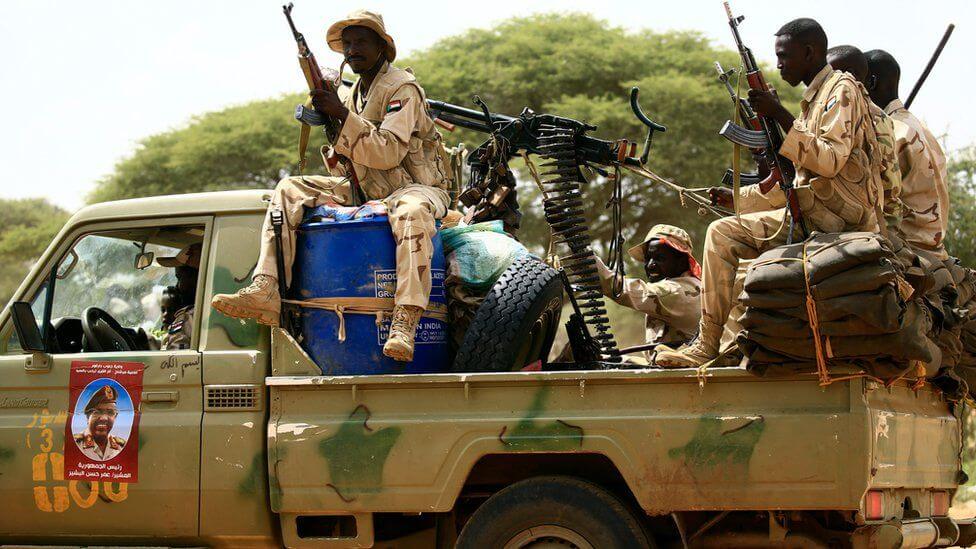Sudan has deployed military reinforcements to West Darfur as violent clashes between Arab and non-Arab villagers in the region continue to escalate. Over 200 people, including women and children, have died as a result of the fighting so far.
West Darfur Provincial Governor Khamis Abdalla Abkar said on Monday that 103 people were wounded in the previous day’s fighting in the town of Kereinik. Abkar added that the town, along with government institutions, was destroyed and security forces deployed initially were overpowered by attackers. “This is a crime, a crime against humanity,” he said.
Abkar said that central authorities have sent additional forces to the conflict-ridden region, including a brigade that is expected to join a civilian protection force that has already been stationed in Kereinik.
However, the Governor of the Darfur region, Minni Arko Minawi, criticised the military for not doing enough to stop the violence. Minawi said that local governments had no powers in the decision-making process related to security and noted that it is time for a reform of the security forces in Darfur.
Similarly, the spokesperson of the Forces for Freedom and Change (FFC) coalition, Al Wathiq El Barir, blamed the inaction of security forces for the latest round of violence. He told Radio Dabanga that the events “confirmed the weakness of the state, security, and military.”
Communal fighting also spread to West Darfur’s capital, Geneina. Clashes between Arab and Massalit tribes were reported in the capital on Monday. Independent Medical group Central Committee of Sudan Doctors said that its staff had to flee the city’s main hospital due to rising insecurity.
We are incredibly worried about the impact this will have on people, who have faced waves of violence, preventing them from seeking the medical care they need, and leaving them in dire need of assistance even prior to this attack.
— MSF East Africa (@MSF_EastAfrica) April 26, 2022
Furthermore, Medicines Sans Frontiers (MSF) stated on Tuesday that three people, including two medical personnel who worked at the hospital, were killed, and that the attacker looted the hospital pharmacy. “We are shocked by these attacks and send our sincere condolences to the families of those who have been killed. We condemn these deadly intrusions in the strongest possible terms,” MSF said, adding, “In conflict, medical structures and staff are protected—this has to be respected by all parties to any conflict at all times.”
Clashes erupted last Friday after two Arab herders were killed in West Darfur’s Kereinik region by unknown attackers. Following the incident, Arab Janjaweed militants with heavy weaponry launched multiple attacks on Kereinik and fighting has continued since. The Janjaweed also torched and looted several properties in the area. According to local officials, over 100,000 people have been displaced as a result of recent attacks, although the exact numbers are not clear.
UNHCR is troubled by the deteriorating situation in #WestDarfur and saddened by the loss of lives and injuries.
— UNHCR Sudan (@UNHCRinSudan) April 26, 2022
We call for an immediate end to violence, for the protection of civilians and for the safety of aid workers to be respected.
UNHCR and partners stand ready to assist.
The attacks were condemned by United Nations Secretary-General António Guterres, who called for an “immediate end” to the fighting. He underscored that “the primary responsibility for the protection of civilians in Darfur rests with the Government of Sudan.”
Tensions have been escalating in Darfur and ethnic clashes have become increasingly frequent since the complete withdrawal of the United Nations-African Union Mission in Darfur (UNAMID) in July 2021. UNAMID handed over the responsibility of maintaining Darfur’s security to the Sudanese government.
Making matters worse, the civilian government was ousted in a coup by the military in October 2021. Military chief Gen. Abdel Fattah al-Burhan dissolved the government and declared a state of emergency after arresting PM Abdalla Hamdok and other civilian leaders. Burhan said the coup was meant to ensure Sudan’s stability, which was jeopardised due to infighting between the military and civilian parties. However, Sudan’s political crisis has refused to die down, as the military has shown no will to give up control despite international pressure and nationwide protests.
Observers have noted that with the ongoing political strife in Sudan, the situation in Darfur is returning to the violence that ravaged the region during the reign of former dictator Omar al-Bashir.
The Darfur conflict began in 2003 when local rebels launched an insurrection to protest Khartoum’s discrimination against Darfuris and the region’s non-Arab population. In response, the Bashir government unleashed local Arab militias, known as the Janjaweed, to fight the rebellion. The Janjaweed carried out mass atrocities against Darfur civilians, including rape, ethnic cleansing, and torture. Reports suggest that around 300,000 people were killed and 2.7 million were displaced during the conflict.

